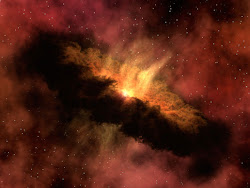By Tom Wright
MAKASSAR, Indonesia -- In January, Stanford University is conducting a $60,000-a-head journey around the world by private jet to commemorate the 150th anniversary of the publication of Charles Darwin's "On the Origin of Species." Taking in the Galapagos Islands and other sites of Mr. Darwin's research, the trip is one of several big events planned world-wide to honor him as the father of evolutionary theory.
But a vocal group of revisionists -- including a British cockroach expert, a former BBC journalist and a human-rights lawyer -- say the spotlight should be on another man: Alfred Russel Wallace.
Mr. Wallace, a naturalist who spent many years collecting bird and insect specimens in the jungles of Indonesia, was famed in the Victorian era as the co-discoverer with Mr. Darwin of evolution by natural selection. But his reputation languished in the mid-20th century as scholars focused their attention on Mr. Darwin. More recently, several books have attempted to resuscitate Mr. Wallace's name, and most mainstream scientists now regard him as the co-founder of modern evolutionary theory.
Hardcore Wallace backers say that isn't good enough. In a new book, "The Darwin Conspiracy: Origins of a Scientific Crime," Roy Davies, a former producer of science programs for the BBC, accuses Mr. Darwin of stealing ideas about evolution from Mr. Wallace -- who was corresponding with him from Indonesia -- and passing them off as his own. "Once you change the focus from Darwin to Wallace, you start to realize what a genius Wallace was," Mr. Davies says.
David Hallmark, a British lawyer who has retraced Mr. Wallace's travels in Southeast Asia, wants to prove Mr. Darwin was an academic cheat. He has hired a specialist in plagiarism software -- the kind used to catch deceitful college students -- to compare Mr. Darwin's and Mr. Wallace's extensive published papers and letters. He plans to submit the findings to a European plagiarism conference early in 2009.
Mr. Hallmark, like many of Mr. Wallace's most ardent supporters, revels in provoking angry reactions from the mainstream scientific community, where Mr. Darwin is revered. Mr. Hallmark was the keynote speaker at a conference this month on Mr. Wallace in Indonesia, which has embraced the naturalist as one of its own and is trying to promote him in advance of next year's Darwin celebrations.
"There's a suspicion of plagiarism, and a more detailed examination will prove it," Mr. Hallmark, who's fond of wearing colorful bow ties and long waistcoats, told the audience of scientists. "I'm very glad Darwin never came to visit [Indonesia]. I hope you would have turned him away," he said, eliciting enthusiastic applause from Indonesian participants, but frowns among some Western scientists.Golden Square Books Ltd.
Chris Austin, head of the science school at Charles Darwin University in the city of Darwin, Australia, disputed Mr. Hallmark's allegations of plagiarism. But he acknowledged the strong pro-Wallace sentiment in the room. "Perhaps I was very foolish to come," he joked.
Indeed. Mr. Davies's British publisher has even suggested that Darwin -- the Australian city -- change its name to some derivation of Mr. Wallace's. The city, named by a former shipmate of Mr. Darwin's on his renowned exploration vessel, the HMS Beagle, rejected the idea.
The Darwinian academic establishment -- which has produced a huge amount of scholarship on their man over the past 50 years -- is not amused by the Wallacites' antics.
The charges of plagiarism are "trumped up," bristles James Moore, a professor at Britain's Open University and a Darwin biographer. He notes that Mr. Wallace himself, who later dedicated his own book, "The Malay Archipelago," to Mr. Darwin, did not think he had been plagiarized. "Why was he apparently oblivious to what his defenders today seek to defend him from?" Mr. Moore asks.
Peter Raby of Cambridge University, a Wallace biographer, says the academic community has treated his subject unjustly as a footnote to Mr. Darwin's career. But he also believes it is unlikely that Mr. Wallace gave Mr. Darwin sufficient clues to help him complete his evolutionary cogitating.
Early Correspondence
The long-running dispute over who influenced whom dates back to the mid-1850s, when Mr. Wallace began corresponding with Mr. Darwin. In 1858, Mr. Wallace wrote a crucial letter from the Indonesian island of Ternate to Mr. Darwin in England, outlining his theory of evolution. Mr. Wallace concluded that environmental stress explained why species evolved over time and some died out -- a shocking suggestion to a Victorian society that believed God-designed Nature was immutable.
Most scientists believe this was essentially the same theory that Mr. Darwin had been ruminating on for 20 years but never got around to publishing as he continued to collect evidence. Mr. Wallace's letter prodded Mr. Darwin to rush out his famous book the following year -- in part to avoid being scooped by Mr. Wallace.
Mr. Darwin panicked on receiving the Wallace letter, writing privately that his life's work was "smashed." A couple of his distinguished friends -- geologist Charles Lyell and botanist Joseph Hooker -- came to the rescue, quickly organizing a joint presentation to the Linnean Society of London on July 1, 1858, of an unpublished letter and a manuscript by Mr. Darwin on natural selection together with Mr. Wallace's letter from Ternate. Mr. Darwin, keen to establish scientific priority, referred to the incident as "a delicate situation."
Even some mainstream scientists argue that more scholarly work needs to be done to clear Mr. Darwin's name. George Beccaloni, a curator at London's Natural History Museum and founder of the A.R. Wallace Memorial Fund who specializes in studying cockroaches, says it's unclear exactly what role Mr. Wallace's letters from Indonesia -- and perhaps other correspondence and published writings -- played in shaping Mr. Darwin's theories.
"The question hasn't been resolved about whether Darwin had the idea many years before Wallace, or whether it was Wallace's letter and ideas that provided the missing pieces of the puzzle," says Mr. Beccaloni.
Grave Needing Tending
Mr. Beccaloni got interested in Mr. Wallace during a camping holiday a decade ago in Dorset, where Mr. Wallace is buried in a churchyard under a seven-foot-tall fossilized tree trunk. Mr. Beccaloni was dismayed to see the grave was overgrown with weeds, while Mr. Darwin is buried next to Isaac Newton and other eminent British scientists at London's Westminster Abbey.
The museum curator set up his memorial fund to restore the grave and put up historical plaques on houses linked to Mr. Wallace. The foundation is now trying to bring together thousands of Mr. Wallace's letters and papers in an online database to facilitate further study of Mr. Wallace's role in formulating evolutionary theory.
Mr. Beccaloni -- who styles himself as "Wallace's Rottweiler," an insiders' allusion to Thomas Huxley, the British biologist who was called "Darwin's Bulldog" for defending natural selection against Christian opposition -- co-edited a major new book on Mr. Wallace this year to raise his hero's profile ahead of the expected rash of Darwin-related commemorative events in 2009. Alongside the Stanford University trip, a modern replica of the Beagle will carry an international crew of scientists, students and teachers to retrace Mr. Darwin's global peregrinations between 1831-1836. There's even a major film slated for 2009, "Creation," starring Paul Bettany and Jennifer Connelly about Mr. Darwin's struggles with his ultrareligious wife.
Mr. Beccaloni acknowledges there is no hard evidence that Mr. Darwin engaged in plagiarism. But his call for deeper study of the issue has ruffled feathers at the Natural History Museum, which plans to open its $120 million Darwin Center expansion to the public next year.
"Colleagues have been a bit critical that I'm trying to champion Wallace because they think one should maintain the status quo," Mr. Beccaloni says. "There's a personality cult among scientists about Darwin."
Copyright 2008 Dow Jones & Company, Inc. All Rights Reserved, WSJ
![[Alfred Russel Wallace]](http://s.wsj.net/public/resources/images/HC-GN167_Russel_BV_20081219184908.gif)
![[Charles Darwin]](http://s.wsj.net/public/resources/images/HC-GN170_Darwin_BV_20081219185030.gif)











0 comments:
Post a Comment